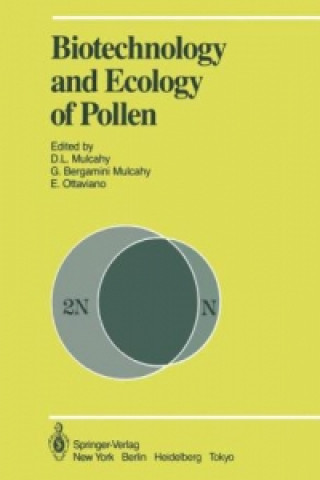
Consegna
Guida all'acquisto





Non ti piace? Non importa! Puoi restituircelo entro 30 giorni
 Buono sconto
Di qualsiasi valore
Buono sconto
Di qualsiasi valore
Non puoi sbagliarti con un buono regalo. Con il buono regalo, il destinatario può scegliere qualsiasi prodotto della nostra offerta.
Biotechnology and Ecology of Pollen
 Inglese
Inglese
 241 b
241 b
30 giorni per il reso
Potrebbe interessarti anche


In Recognition of the Forgotten Generation D. L. MULCAHyl Pollen was long believed to serve primarily a single function, that of delivering male gametes to the egge A secondary and generally overlooked value of pollen is that it serves to block the transmission of many defective alleles and gene combinations into the next generation. This latter function comes about simply because pollen tubes carrying defective haploid genotypes frequently fail to complete growth through the entire length of the style. However, the beneficial consequences of this pollen selection are diluted by the fact that the same deleterious genotypes are often transmitted through the egg at strictly mendelian frequencies (Khush, 1973). Gene expression in the pollen might thus at least appear to be a phenomenon of trivial consequence. Indeed, Heslop-Harrison (1979) rightly termed the gametophytic portion of the angiosperm life cycle, the "forgotten generation." This neglect, however, came about despite subtle but constant indications that pollen is the site of intense gene activity and selection. For example, Mok and Peloquin (1975) demonstrated that relatively heterozygous diploid pollen shows heterotic characteristics whereas relatively homozygous diploid pOllen does not. This was proof positive that genes are expressed (that is, transcribed and translated) in the pollen. 1 Department of Botany, University of Massachusetts Amherst, MA 01003, USA viii However, the implications for pollen biology of even this recent and well known study were not widely recognized.
Informazioni sul libro
 Inglese
Inglese
Categorie


 Contatto
Contatto Come acquistare
Come acquistare
























